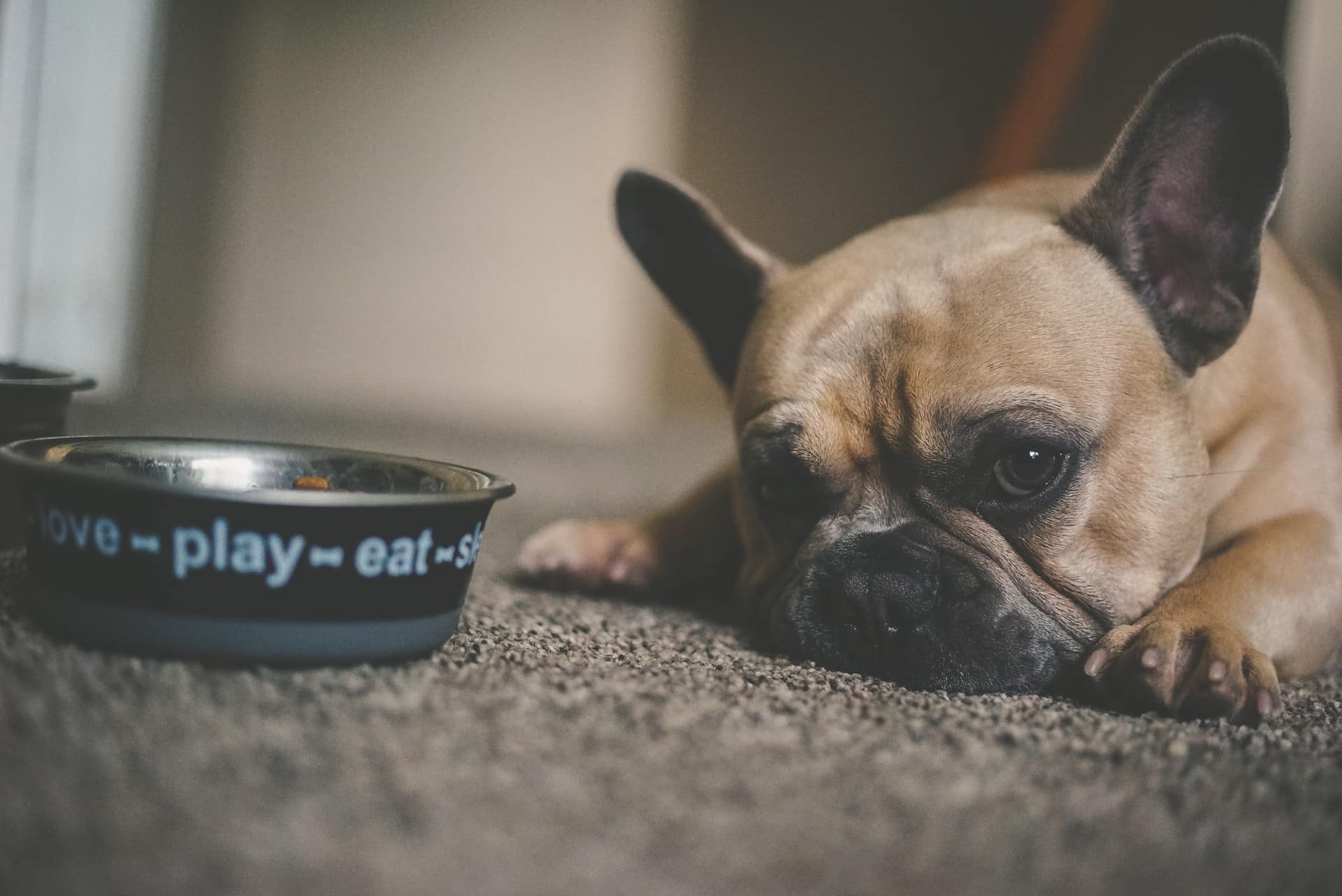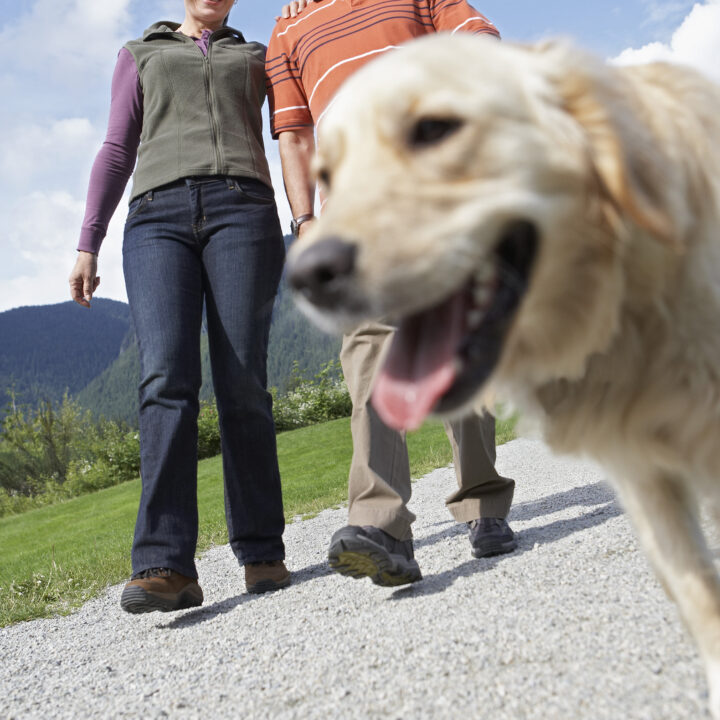Disclosure: Articles may contain affiliate links. As an Amazon Associate, we earn from qualifying purchases (at no additional cost to you). See our full disclosure here.
Last updated on February 1st, 2023 at 11:31 pm
It’s up to us to care for our pets. They need exercise, training, lots of love, and the right food. If they aren’t taken care of properly, you might notice behavioral problems or illness, including problems with their digestive system. Let’s talk about some of the digestive issues in dogs you might see as a pet parent–and what to do about them.

Common Digestive Issues in Dogs
The digestive system is how any animal gets nutrition from the food it eats. If their digestive system is not healthy, they’ll have difficulty getting the nutrition they neeed from their food. Feeding animals, including dogs, is not just about feeding them a healthy, balanced diet; it’s sometimes also about feeding them a diet that’s especially suited to them. Some dogs will need dog foods for sensitive stomachs, otherwise they may develop the following problems:
- Vomiting
Vomiting is a common digestive issues in dogs. If food or anything else is irritating a dog’s digestive system, they are likely to vomit. If they are bringing their food back up often, they won’t get sufficient nutrition. Of course, this can be very unhealthy, and severe cases can pose a real threat to their health and life. If a check-up with the vet shows no medical issues, the next step may be changing their food.
You might also want to look at how fast they’re eating their food. A simple solution, could be a “slow” feeding bowl that keeps them from eating too fast.
- Diarrhea
Another frequent digestive issues in dogs is diarrhea. If a dog’s gut is irritated, food will pass through them faster than usual, resulting in what is commonly known as diarrhea. In cases of diarrhea, the food is passing through so quickly that the body doesn’t have time to absorb all of the nutrients. This also means that not enough water is absorbed, which is why diarrhea produces very watery stools. With a risk of malnutrition and dehydration, severe cases of diarrhea can be dangerous, so they should not be taken lightly.
- Weight Loss
Insufficient nutrition from vomiting or diarrhea can mean your dog is unable to maintain a healthy weight. They will become thinner than they should be and a lot weaker. Being too thin is unhealthy for any pet, and could cause potentially severe health conditions in the long term.
Make sure you are feeding your dog enough and, if you are, the type of food rather the quantity, could be the problem. If changing the type of food you feed your pet doesn’t solve the problem, a vet visit is in order.
Veterinarians are used to dealing with various gut health and digestive issues in dogs and should be able to get your dog on the path back to good health.

Choosing the Right Food
One way to help ensure your pet gets the nutrition they need is to buy food that’s made by a reputable brand. Always purchase food that is specially formalulated with dogs in mind to help ensure they get a balanced diet containing all the nutrition they need. The big dog food brands will also sell food that has a dog’s personal tastes in mind, as well as food that caters to those with sensitive stomachs and other needs. Remember that mixing different types of food, like mixing dry food in with wet food, will also help ensure your pooch gets the right nutrition.
Try to make sure your dog doesn’t eat their food too quickly. As mentioned previously, eating too fast is another cause of stomach upset. If your dog does have a habit of wolfing their food down quickly, consider buying a specialized bowl or another feeder that forces them to slow down.

What to Do if Your Dog Has Digestive Issues
If the veterinarian gives you the all-clear, and you suspect your dog’s food is the cause of digestive issues, try experimenting with different brands or flavors. Perhaps dog food for sensitive stomachs is what your dog needs. Bear in mind, it can take time for your pet’s digestive system to get used to a new type of food. If your dog is ill after you have introduced a new type of food, try gradually mixing it in with their previous food in increasing ratios.
If your dog is still having digestive issues after changing food, and/or their symptoms are severe, you should take them to see a vet. Dogs are susceptible to a wide variety of diseases, and they sometimes get into toxic substances, both of which may be fatal if not treated in time.
Conclusion
For a happy and healthy dog, it’s important to give them the right food. This will go a long way in heading off some of the most common digestive issues in dogs. Some trial and error might be necessary to find the best food for them, but any pet parent should be able to find the right balance.
Do you have any experience with digestive issues in dogs? How have you helped your pets?
Also read —
Check Out These Pet-Friendly Hotel Chains Before Your Next Vacation
Make Sure Your Dog is Ready for Summer!
How to Adopt the Right Pet for Your Family
Leave a Reply